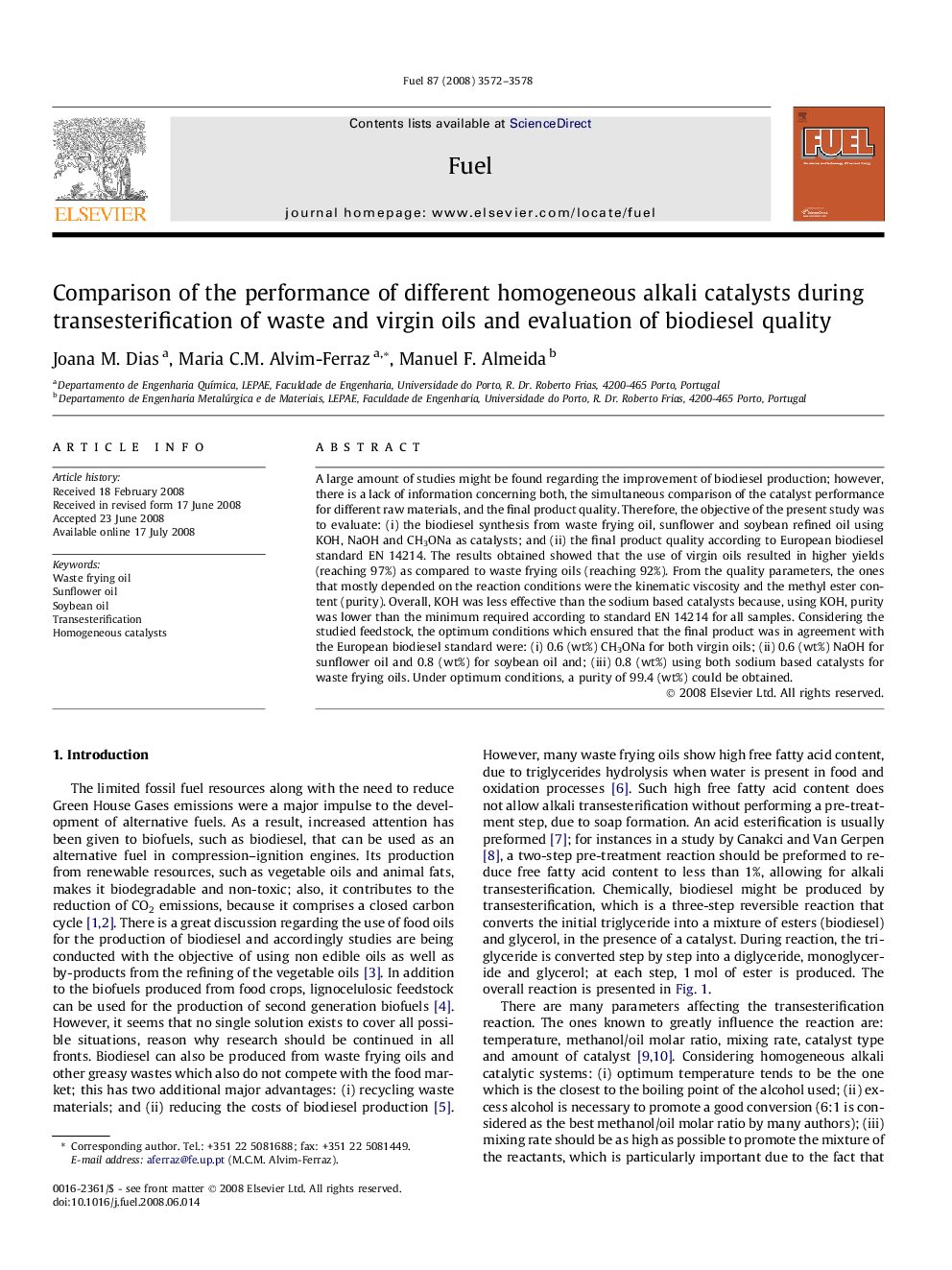| Article ID | Journal | Published Year | Pages | File Type |
|---|---|---|---|---|
| 207714 | Fuel | 2008 | 7 Pages |
A large amount of studies might be found regarding the improvement of biodiesel production; however, there is a lack of information concerning both, the simultaneous comparison of the catalyst performance for different raw materials, and the final product quality. Therefore, the objective of the present study was to evaluate: (i) the biodiesel synthesis from waste frying oil, sunflower and soybean refined oil using KOH, NaOH and CH3ONa as catalysts; and (ii) the final product quality according to European biodiesel standard EN 14214. The results obtained showed that the use of virgin oils resulted in higher yields (reaching 97%) as compared to waste frying oils (reaching 92%). From the quality parameters, the ones that mostly depended on the reaction conditions were the kinematic viscosity and the methyl ester content (purity). Overall, KOH was less effective than the sodium based catalysts because, using KOH, purity was lower than the minimum required according to standard EN 14214 for all samples. Considering the studied feedstock, the optimum conditions which ensured that the final product was in agreement with the European biodiesel standard were: (i) 0.6 (wt%) CH3ONa for both virgin oils; (ii) 0.6 (wt%) NaOH for sunflower oil and 0.8 (wt%) for soybean oil and; (iii) 0.8 (wt%) using both sodium based catalysts for waste frying oils. Under optimum conditions, a purity of 99.4 (wt%) could be obtained.
